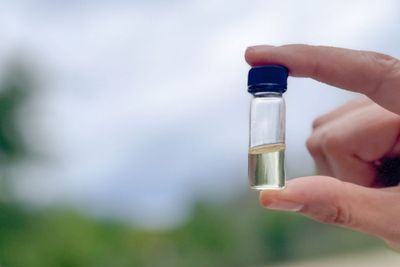global expansion
Houston biotech company continues to expand in Brazil with new research partner

Cemvita has partnered with Brazilian sustainable research institution REMA. Photo courtesy of Cemvita
Houston biotech company Cemvita has announced a strategic collaboration with Brazilian sustainable research institution REMA.
The move aims to promote Cemvita’s platform for evaluating and testing carbon waste streams as feedstocks for producing sustainable oil, according to the company.
Cemvita utilizes synthetic biology to transform carbon emissions into valuable bio-based chemicals. REMA professors Marcio Schneider and Admir Giachini have previously worked with Cemvita’s CTO, Marcio Busi da Silva, for approximately 20 years.
“This long-standing partnership reflects not only our strong professional ties, but also our shared commitment to advancing science and technology for a more sustainable future," Busi da Silva said in a news release.
REMA’s center is based in Florianópolis and is affiliated with the Federal University of Santa Catarina, which develops cost-effective environmental and technological solutions in automation, chemical engineering, biotech, environmental engineering and agronomy.
“Partnering with REMA in Florianópolis represents a significant step forward in our mission to transform carbon waste into valuable resources,” Tara Karimi, chief science and sustainability officer of Cemvita, said in a news release. “Together, we will enhance our platform’s capabilities, leveraging REMA’s expertise to evaluate and utilize diverse waste streams for sustainable oil production, further advancing the circular bioeconomy in Brazil and beyond.”
Cemvita recently expanded to Brazil to capitalize on the country’s progressive regulatory framework, which includes Brazil’s Fuel of the Future Law. The expansion also aimed to coincide with the 2025 COP30, the UN’s climate change conference, which will be hosted in Brazil in November.
Cemvita became capable of generating 500 barrels per day of sustainable oil from carbon waste at its first commercial plant in 2024, and as a result, Cemvita quadrupled output at its Houston plant. The company originally planned to reach this milestone in 2029.
Also in 2025, Cemvita announced a partnership with Brazil-based Be8 that focused on converting biodiesel byproduct glycerin into low-carbon feedstock to help support the decarbonization of the aviation sector. Cemvita agreed to a 20-year contract that specified it would supply up to 50 million gallons of SAF annually to United Airlines in 2023.